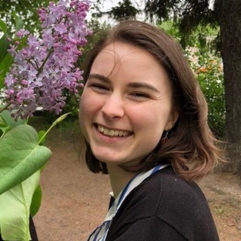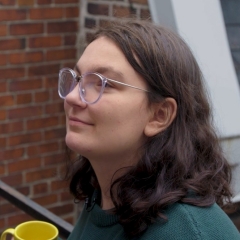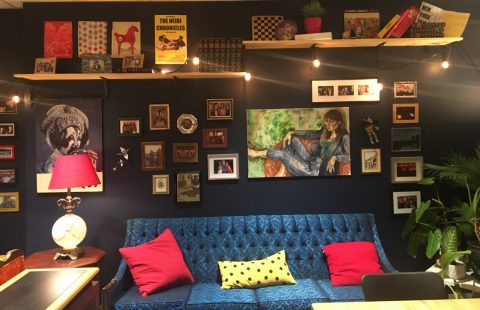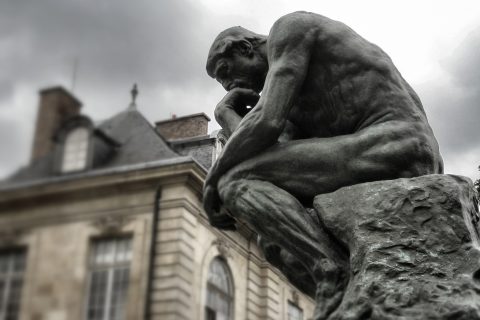History (BA)
Virtual information sessions
Discover what makes Concordia's Faculty of Arts and Science stand out as a leader in the humanities and social and natural sciences, including academic opportunities, hands-on learning and how to achieve your goals.
Why study History?
History shapes the world we inhabit; it substantially determines the constraints and the possibilities of our experience; it colours the aspirations and aversions that drive us, individually and collectively. We can choose to live in ignorance of history, but we cannot live independently of it. History, in other words, is a burden we all share, but for some of us it is also a resource. It imposes limits but also supplies opportunities.
History is more than mere facts; it is a dynamic discipline built on analysis, debate and interpretation. When you study history, you develop a cultural vocabulary that examines humanity through events, culture and context. Our modern multimedia facilities bring history to life through images, texts, and sound recordings. Our faculty specialize in areas that reflect the world’s diversity. Whether your heart lies in modern Africa, medieval England or contemporary Japan, you will have the opportunity to study the historical periods and geographical locations that capture your attention. Complement your studies with thematic courses such as film in history, gender, the history of peace and war or environmental history.
Program highlights
- Opportunities to participate in research projects at research centres including the Centre for Oral History and Digital Storytelling and the Ethnography Lab
Special funding for out-of-province students
Up to $4000 for undergraduate programs.
Program structure
A Bachelor of Arts degree takes a minimum of three or four years (90 – 120 credits) of full-time study, depending on your academic background.
Program options
- Honours in History - Essay Option (60 credits)*
- Honours in History - Seminar Option (60 credits)*
- Honours in History - Public History (60 credits)*
- Specialization in History (60 credits)
- Major in History (42 credits)
- Minor in History (24 credits)
- Joint Specialization in English and History (30 credits in English, 30 credits in History)
- Minor in Law and Society (24 credits)
*Honours is a highly concentrated program, ideal for students planning to continue to graduate studies. If you are interested in Honours, speak with your program advisor in your first year of study at Concordia. Students applying to the University are able to apply to the major or specialization.
Courses
United States students: A U.S. Federal Student Aid-eligible version of this program is offered. This version meets all U.S. regulations (such as no co-operative education or e-courses) for eligible programs.
Admission criteria
Minimum cut-off averages and course requirements
- Quebec CEGEP: 20
- High School: C+
- ACT or SAT is NOT required
- Canadian curricula course requirements
- Accepted international qualifications
- International Baccalaureate (IB) diploma: 26
- International Baccalaureate Career-related Programme (CP): 4.3/7
- Baccalauréat français: 11
- British system of education (GCE):
- A-levels: At least two A-level exams CD or
- AS-levels: At least 4 AS-level exams with equivalent results or
- BTEC: Level 3 Diploma or Extended Diploma in a related subject area with equivalent results
- Additional information for British System of Education (GCE) applicants
- University Transfers (internal/external): C
Minimum cut-off averages should be used as indicators. The cut-off data may change depending on the applicant pool. Applicants who meet the stated minimum requirements are not guaranteed admission to these programs.
Application deadlines

FALL ENTRY (September)
Deadline: March 1
U.S. and international applicants: Apply no later than February 1 to allow time for immigration document processing. However, applying earlier is strongly recommended. Immigration processing times vary by country and delays could prevent you from starting your studies on time.

WINTER ENTRY (January)
Deadline: November 1
U.S. and international applicants: Apply no later than August 1 to allow time for immigration document processing. However, applying earlier is strongly recommended. Immigration processing times vary by country and delays could prevent you from starting your studies on time.
We reserve the right to close admission to a program at any time after the official deadline without prior notice.
Student stories

Ona Bantjes-Rafols
Honours History: Seminar OptionOna Bantjes-Rafols was encouraged to reach beyond the classroom and take part in the academic field of History.

Scarlet Guy
Bachelor of Arts Honours History: Public History
Find out how Scarlet Guy discovers a world of interdisciplinary learning and community support in the Faculty of Arts and Science.
Other programs of interest

Take on the narrative of the human story, through analysis and the re-interpretation of historical events.
Department
Faculty

Delving into the Irish experience will anchor and expand your understanding of the issues facing our planet today. The people of Ireland have a history that includes colonisation, famine, diaspora, civil war, partition, and the Troubles.
Department
Faculty

A liberal arts education equips you for life. The Liberal Arts program teaches you to think critically, enhance your communication skills and become a more resourceful, innovative and self-confident person.
Department
Faculty

Philosophers reflect on some of the world’s most serious problems: the basis of ethical action, human rights, global justice or our relationship with the environment.
Department
Faculty

